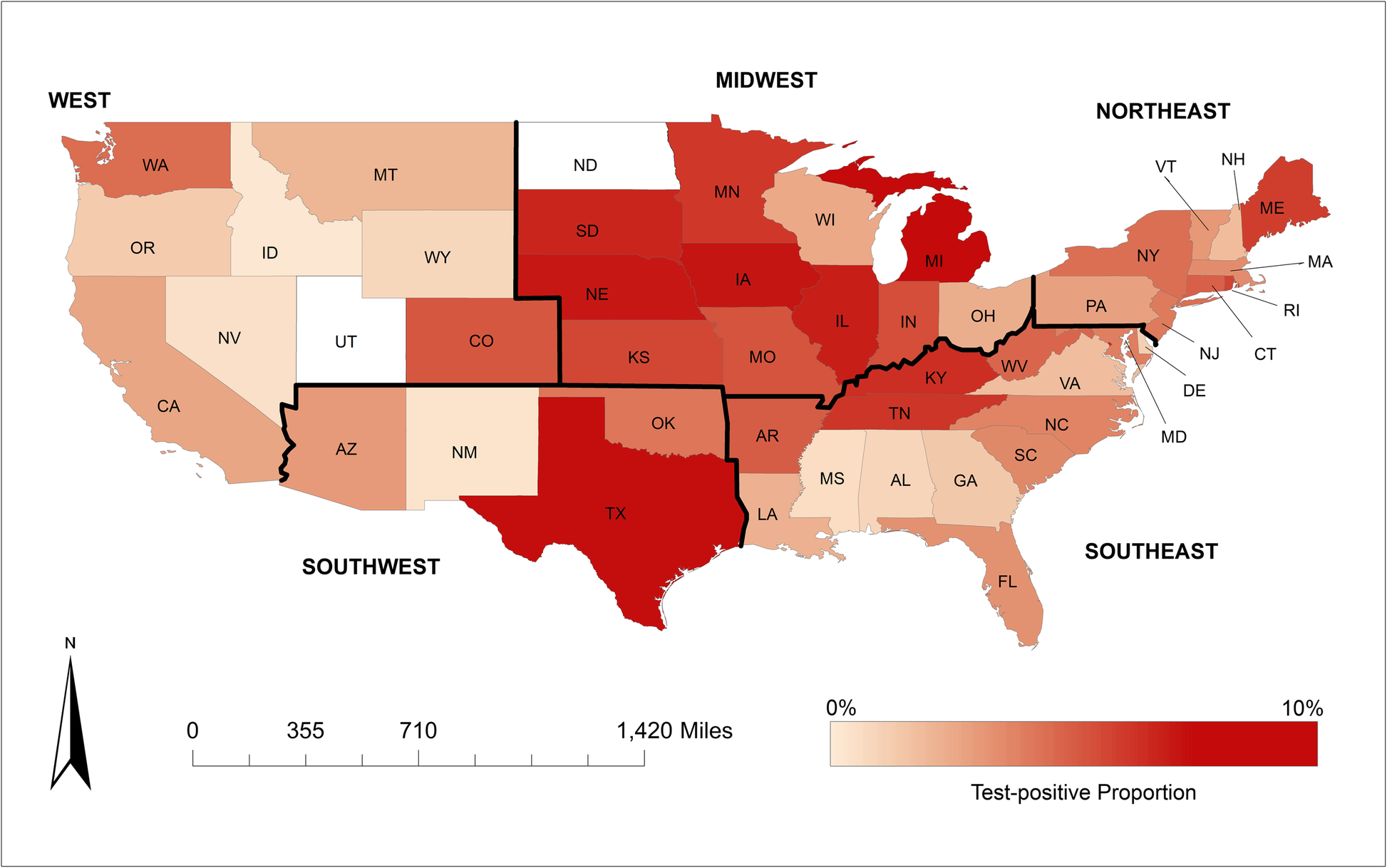Risk factors for leptospirosis
Researchers aimed to describe temporal trends, to descriptively map, and to identify environmental, dog, and human-level factors associated with positive canine leptospirosis PCR test results in the United States.
Study evaluated data from 40,118 canine leptospirosis PCR tests run in the United States between 2009 and 2016. Climate and socioeconomic data were obtained from public databases.
Overall test-positive proportion was 5.4% across the United States, with the regional point estimate highest in the southwest (8.1%). In the final multivariable model, the odds of a positive test were greater for male dogs and dogs 0–4 years of age. The odds of a positive test were greater for dogs living in areas with wet environmental conditions. Season and temperature, as well as the interaction between them, were significant predictors of a positive test. Dogs had a greater probability of testing positive during cool temperatures compared to the other temperature categories in the fall season.
Canine leptospirosis state-level PCR test-positive proportion across the United States (2009–2016)


